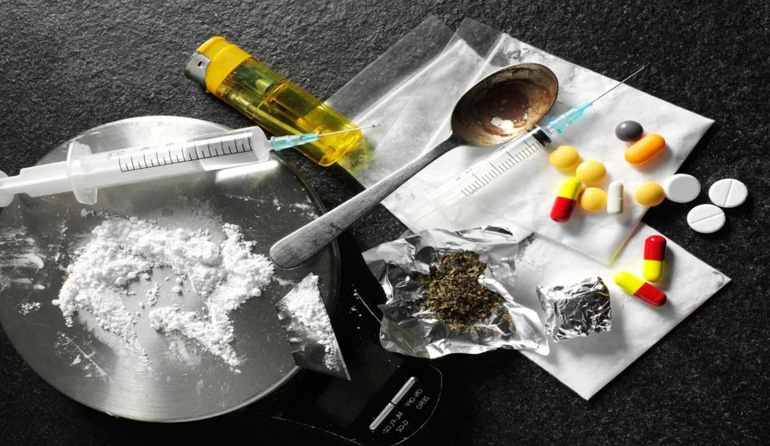
Have You Been Arrested For A Narcotic Drug Crime in Arizona
Everything You Need To Know About Narcotic Drug Crime in Scottsdale, Arizona
In Arizona, felony charges stemming from a narcotics drug offense can have substantial implications. Conviction often results in prison time and hefty fines of thousands of dollars. However, if you have been arrested for a narcotics drug crime in Scottsdale, Arizona, you can successfully defend yourself and secure a significantly more favorable outcome for your case.
Here’s everything you need to know about narcotic drug crimes in Scottsdale, Arizona, to help you decide on your next line of action.
Arizona Narcotic Drug Laws
Arizona’s narcotics laws include a wide range of drug charges. These statutes apply to all cities, including Scottsdale. Knowingly engaging in the following activities is illegal under the drug laws:
- Possessing or using a narcotic substance without a prescription.
- Possession of a narcotic drug for sale
- Possessing chemicals or equipment to make a narcotic drug
- Owning chemicals or equipment to make a narcotic drug
- The production of a narcotic drug
- Giving another person a narcotic drug
- Using deception, fraud, or misrepresentation to obtain the administration of a narcotic drug
- Transporting a narcotic drug for sale, importing it into Arizona, selling or transferring it, or proposing to do so.
What Are Narcotic Drugs?
Narcotics, often known as opiates, are painkillers used to treat chronic or acute pain. Narcotic drugs are made from an opium base and are highly addictive; even a few usages can cause addiction. The narcotic drugs controlled under Arizona laws include the following:
- Heroin
- Hydrocodone
- Oxycodone
- Methadone
- Crack
- Cocaine
- Codeine
- Fentanyl
- Morphine

Penalties for Narcotic Drug Crimes in Scottsdale, Arizona
The severity of penalties for drug-related offenses varies significantly depending on the circumstances. Prior felony convictions and those on probation or parole at the current narcotic drug charge would face harsher punishment.
In some cases, in Arizona, those guilty of certain drug crimes may face federal prosecution in addition to or instead of state counts. This implies longer time in prison, more fines, and considerably more severe repercussions.
According to the Arizona Revised Statutes, a drug offense involving narcotics is a felony. Convictions for drug offenses usually come with a fine as high as $150,000. The following are the specific categories and penalties:
Possession or use of a narcotic drug without prescription
Narcotic drug possession is a class 4 felony punishable by one to three years in jail. Probation is available and required for the vast majority of people. A defendant on probation spends anywhere from 0 to 365 days in prison and 360 hours of community service.
Additionally, first and second-time non-violent drug offenders are not eligible for a prison sentence for narcotics possession. A past violent conviction or two prior drug offenses are required for imprisonment.
Possession of a narcotic drug for sale
This is a class 2 felony that has a three-year minimum sentence. Depending on the seriousness of the crime, the sentence might be increased to 12.5 years.
Possession of equipment or chemicals for manufacturing a narcotic drug
This is a class 3 felony with a minimum sentence of two years in jail and a maximum sentence of nearly nine years if the offense is aggravated. If the judge so chooses, probation may also be an option.
Manufacturing a narcotic drug
A class 2 felony with a compulsory minimum sentence of three years in prison, also the judge could raise the penalty to 12.5 years.
A person convicted of this felony is not eligible for sentence suspension, probation, pardon or release from custody until the completion of the Court’s sentence.
Administering a narcotic drug to another person
A conviction is a class 2 felony and attracts between 3-12.5 years prison term.
Obtain the administration of a narcotic drug by deceit, misrepresentation, or fraud
A class 3 felony attracts a minimum sentence of two years in jail. Still, an aggravated charge might have a penalty of nearly nine years in prison. Probation may be a possibility.
Transport for sale, import into the state, sell, transfer or offer to sell or transfer a narcotic drug
Depending on the gravity of the conduct, a class 2 felony can result in a sentence ranging from three to 12.5 years in prison.

What To Do If You Have Been Arrested For Narcotic Drug Crimes in Scottsdale, Arizona
If you’ve been arrested in Arizona for a narcotics criminal offense, following the appropriate steps can make a big difference in the case. The actions listed below can assist you in achieving a positive outcome.
Keep silent
You should inform the cops that you desire to exercise your right to remain silent until your drug lawyer arrives or gives you further instructions. However, if you only remain silent without stating the reason, cops will conclude you are uncooperative. After all, anything you say or do could affect your narcotic drug case.
Get a drug lawyer in Scottsdale, Arizona, promptly
Your drug lawyer will inform you of your legal rights and defensive options. What’s more, your future and freedom are essential to a skilled criminal defense attorney. They will ensure your rights are secured and that you do not say anything that could be used against you or harm your defense later.
Watch out for anything unusual.
Take careful notes on any discussion, encounters, or incidents before, during, or after your arrest. As little as they may appear to you, details may open the door to a viable defense strategy that your lawyer can employ.
Details could reveal a breach of your rights, an illegal search, and seizure, police procedure violations, evidence tampering, unlawful arrest, etc. If you can document these events, do so.
Keep the specifics of your drug charge private.
You should not discuss specifics of your drug case with anybody other than your criminal defense attorney, whether over the phone or in person. There are at least three reasons for doing that. First, Calls made from prison are recorded and can be useful against you in Court. Secondly, your friends are family may need to testify against you, and thirdly, you may receive wrong advice.
Common Defenses To Narcotic Drug Charges
When you hire a lawyer to represent you in a narcotics drug offense case, your attorney will carefully examine the evidence to determine the best defenses against your charges. The following are some of the most prevailing ones:
Violations of police procedure
The Constitution guarantees due process in criminal matters and protects against illegal searches and seizures. Any infringement of your constitutional rights could result in evidence suppression and your charges dismissed.
Lack of criminal intent or knowledge
You may not know that you have narcotics on your person, among your things, in your car, or in your home. The prosecutor must show you deliberately had narcotic substances beyond a reasonable doubt. On the other hand, your lawyer may look for evidence to prove that you did not know the narcotic drug.
Narcotic drug test result
Your lawyer can challenge the result of the drug test. Therefore, the prosecution must show that the substance recovered contains a chemical classified as a narcotic drug under Arizona law. To confirm the existence of a narcotic substance, a skilled forensic scientist must analyze the material and testify in Court. Otherwise, your case can be dismissed.
Challenges to the chain of custody
The State must show that the substance found at the crime scene matches the one in the courtroom. Thus, the prosecution must hold everyone who handled the drugs accountable. They also have to prove that the medications were not tampered with or mishandled. This chain can occasionally break, resulting in dismissal.
Presenting a valid prescription
If you’re arrested for an uncomplicated drug possession charge, proving that you had a legitimate prescription for drugs like oxycodone will almost always result in the charge being dropped.
